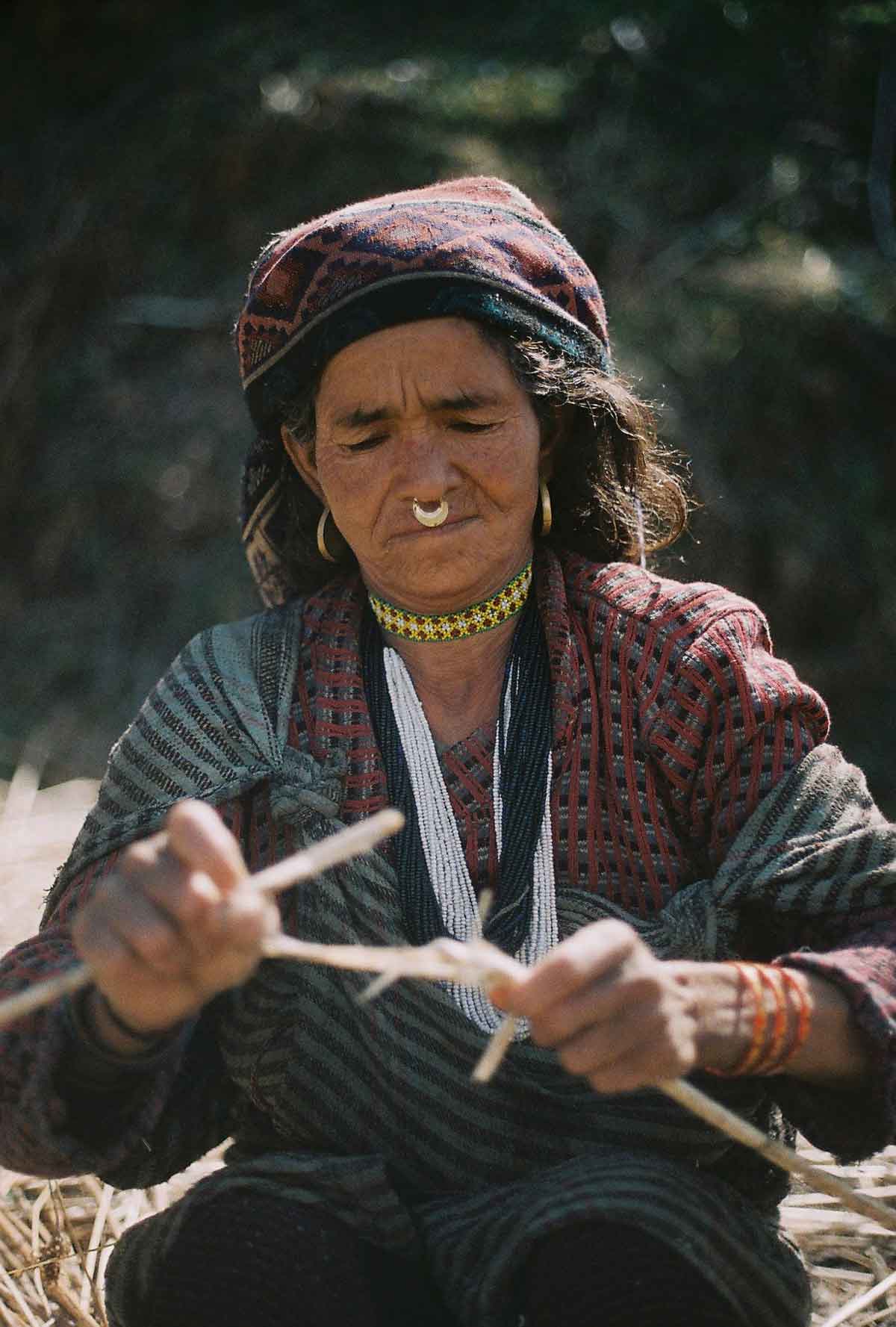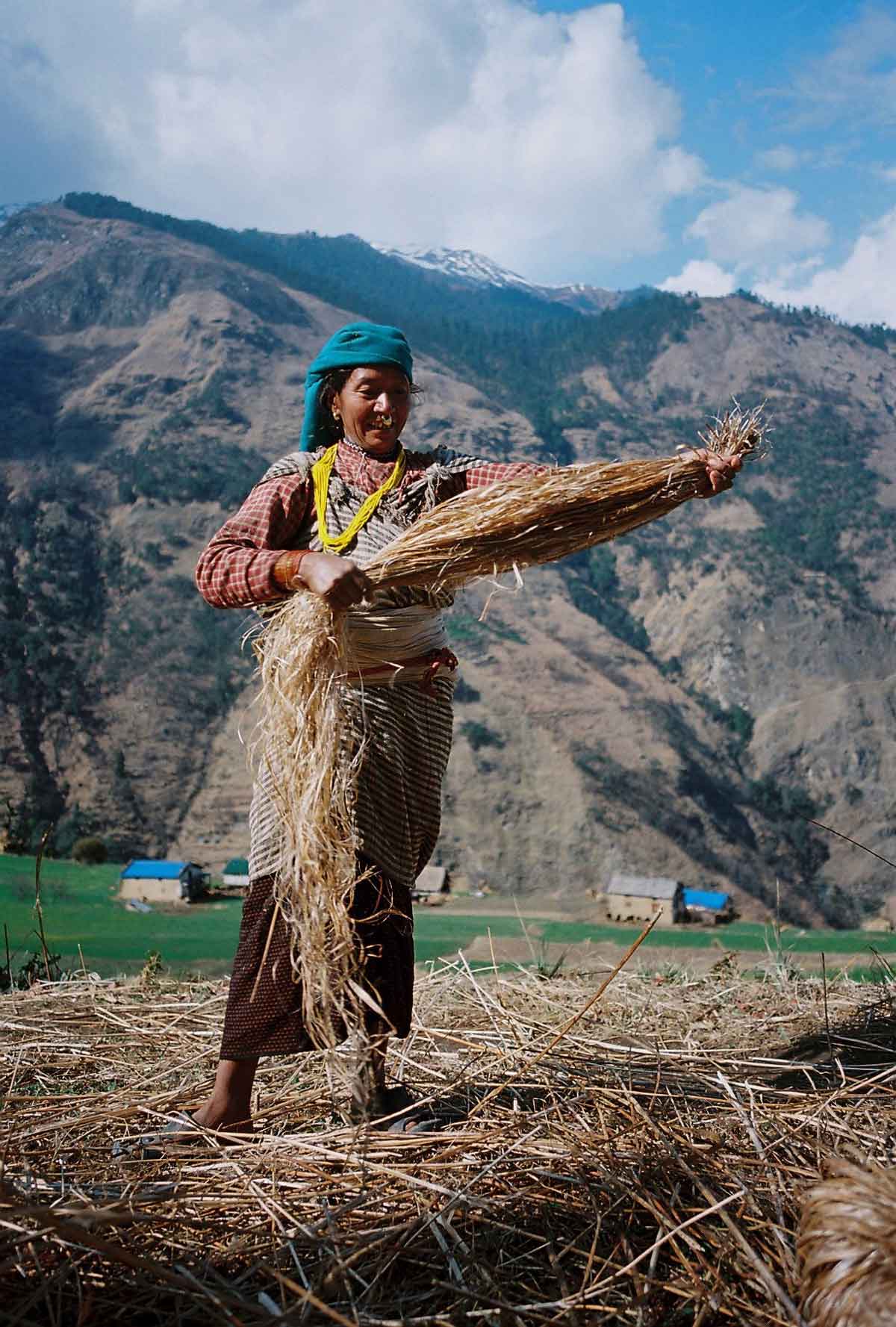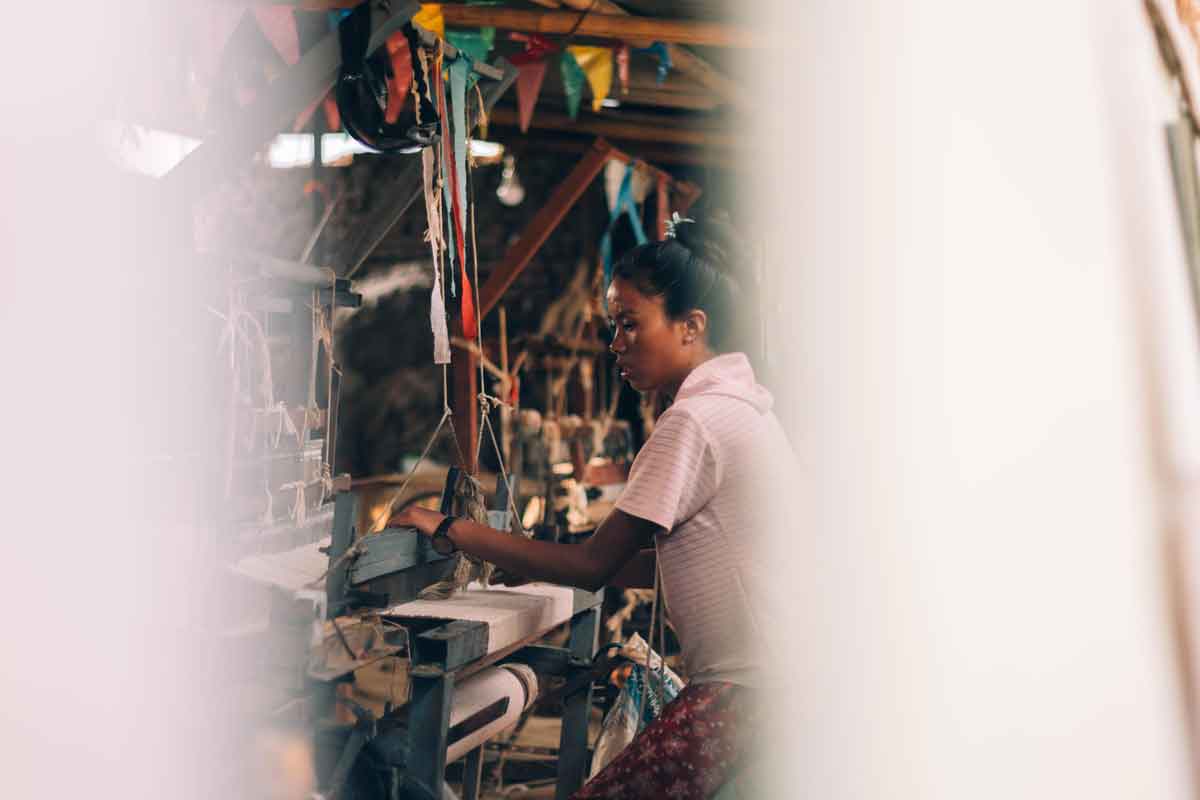
Introducing Hemper: Sustainable Brand and Regenerative Project
Gloria Gubianas and Alex Pastrana are the founders of regenerative brand Hemper, a fashion project working to contribute to Nepal’s social and environmental wealth. We have felt blessed to delve deeper into the inspiring world of Hemper through conversation with Gloria.
The two founders of Hemper do not come from a fashion background, their passion for this project derived from their strong desire to make such a powerful impact. Fashion was simply the appropriate platform. When Gloria and Alex visited Nepal several years ago with an NGO, they separately realised that there was more to be done to solve the countries socioeconomic issues. They were swept up by the emotions they felt whilst in Nepal, which inspirited their commitment to the cause and continues to fuel the brand today, commitment is at the root of Hemper.
The concept of Hemper is so magical amongst the chaos of the traditional fashion industry. Gloria explains how most of Hemper’s inspiration comes from their strong relationships with friends who come from different backgrounds, having engaging and inspiring chats which reveal so much perspective. The brands approach is very collaborative. Midst the fashion industry, Hemper resonates with the engaging way Grace Wales Bonner blends design and research into her work. From an aspirational viewpoint Patagonia are a motivating brand for Hemper, as they prove that an alternative way of conscious garment production is possible, even on mass!



Hemper is not only a sustainable brand, but a regenerative project. They ensure to use sustainable fibres and materials within their products, believing this is not where the questioning should end. The entire model of production must be evaluated – always taking into consideration both environmental and social effects: Where do the materials come from? Who cultivates them? By whom are the garments stitched? Gloria says “We believe in establishing an emotional relationship and commitment with garments and objects in general beyond just acquiring them.”
Through using wild hemp from Himilaya, Hemper produce sustainable products that do not cause any harm to the environment. “As the most sustainable fibre on earth, working with Himalayan hemp does not only preserve environmental richness but also a cultural one.” The producers are a group of Nepali locals who are able to practise their threatened craft, an important aspect to Hemper’s value chain to reach their social mission and create a triple impact: People, Planet and Profit. Establishing a friendly relationship and meeting their suppliers and workers on a personal level is a really special process for Grace and Alex.





“Being in a constant conversation with our suppliers is an essential part of Hemper’s soul. Identifying the necessities to allow growth in our supplier’s lives implies both knowing them as people with names and lives and working on capacity building.” – Gloria says.
As Gloria spends at least half the year in Nepal, she is able to ensure the eco and ethical commitments are being respected. In fact Pema and Tschering, two members from the team, remain in Kathmandu for the entire year so, along with the rest of the Madrid team, they can guarantee the commitments made through production are maintained. Hemper strives for complete transparency and utter social awareness of everything they do. Members of the team are in constant contact with every step of the value chain, it means little improvements can always be made between suppliers, especially as these relationships are all so faithful.




Hemper’s vision is to promote sustainable fashion whilst contributing to social and economic development in Nepal. They pride themselves with their value chain model of positive impacts and initiatives surrounding the brand. The beauty of Hemper being a project is that new opportunities constantly arise. The team are always conducting research, from collaborating with audio-visual artists in Spain to conversing with their producers in Kathmandu and Bajura, discovering new weaving patterns together for example.
“As any project, it has matured with us, the team.” Says Gloria. “We implement new paths constantly; measures to amplify the traceability of our impact, delving more and more in research work… It is a living project that expands in the directions in which its members do.”
Certification can be key for a sustainable brands success in the industry. For Gloria and the team, they act as a symbol for the dedication and commitment involved in guarantying their value chain is in alignment with their morals and ethics. Hemper have been certified by PETA and further more are the second B-Corp certified fashion brand in Spain. One of the greatest knowledge exchanges, Gloria said was “Working with suppliers that weren’t familiar with the term Fair Trade and working with them to meet the standards.”
The Hemper project has fashion, craft and impact at the heart, it has the ability to make everyone apart of the journey. One initiative focuses on personalizing and repairing each product, allowing everyone to take part in the value chain and make positive decisions with their individual fashion. “One of the things we like most is that there is an intergenerational and really diverse crowd that likes our products. We find that really special.” Hemper is so unique because each step of the production impacts both the environment and the vulnerable communities of Nepali, it’s regenerative.
In a recent collaboration with CANADA, an audio-visual producing company, Hemper launched a documentary entitled Mala Hierba about their first Fair Trade collection produced for a global fashion retailer – Springfield. “Mala Hierba is a delicate piece of film that documents our own production processes. We went with the whole photography team to the Himalayan region.” The film takes the viewer on a beautiful tour from Bajura to see the hemp transformed into fabrics, then to Kathmandu to visit the vegetable dyeing workshops. What an enchanting way to landmark the brands global movement.



“We think of Hemper as a story of preservation and care: Our fine selection of fabrics are the outcome of recovering and protecting traditional Nepali weaving and cultivation techniques threatened to disappear. Our constant conversations make us function as textiles ourselves: being different threads constructing a collective fabric.” – Gloria Gubianas.
It is incredible how Hemper have established themselves so successfully in the Spanish market, the world deserves for their vision to continue growing. The team have future plans to close the value chain circle in other international markets and we are in complete support of this! Good Luck Hemper.
+ Words: Cerys Matthews, Luxiders Magazine








